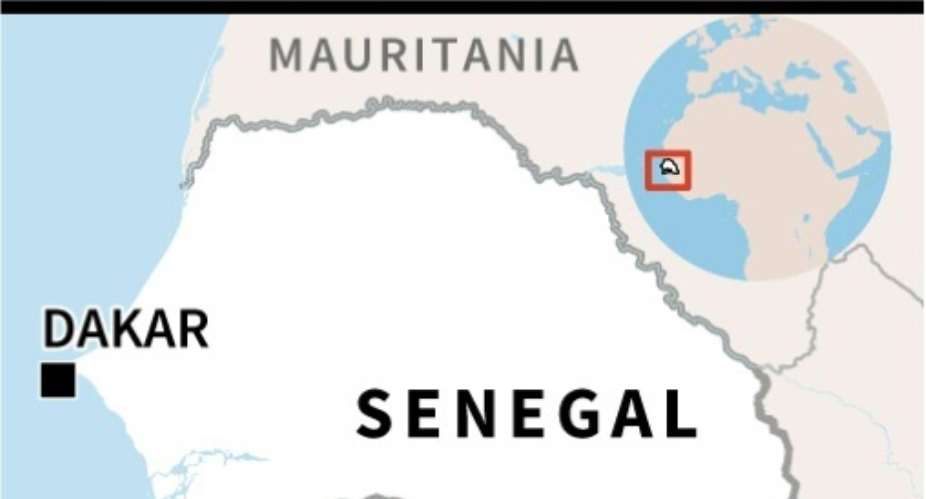As anti-establishment Bassirou Diomaye Faye looks set to take Senegal's presidency, analysts say his win also reflects a protest against the outgoing leadership and divisions within a powerful but weakened governing coalition.
President Macky Sall's hand-picked candidate, former prime minister Amadou Ba, on Monday conceded defeat, triggering a mixture of pride, dejection and resentment among dozens of gathered supporters.
"Amadou Ba was loyal, but unfortunately he was opposed by some of our leaders," said Rene-Pierre Yehoume, a coordinator for the president's Benno Bokk Yaakaar (BBY) coalition.
Some supporters have blamed Sall for his limited involvement in the presidential campaign run by the man he had selected as his successor.
"Macky Sall has torpedoed the careers of thousands of supporters who have accompanied him all these years," the former head of BBY's parliamentary group, Moustapha Diakhate, said in Le Quotidien newspaper.
For the coalition's spokesman, Pape Mahawa Diouf, the defeat had brought about a "lack of composure".
The "new opposition" must accept the outcome and prepare to play its part, he told AFP, but insisted BBY had an "undeniable record of building the country".
Internal divisions, however, only tell part of the story.
Analysts say Faye swept to victory thanks to his promise of a "break" with what he described as years of injustice and corruption.
The poll was also seen as a protest against 12 years of Sall's leadership, marked by three years of deadly political unrest and an economic slowdown.
Amadou Ba had pitched himself as the successor of President Sall, whose ambitious multi-year development plan changed the face of Senegal, but did little to reduce poverty and inequality.
'Last big mistake'
Even before his postponement of the presidential election, Sall's legacy included dozens of deaths, hundreds of arrests, and violations denounced by rights groups.
"They made so many mistakes," said El Hadji Mamadou Mbaye, a political science lecturer and researcher at the University of Saint-Louis, who described the defeat as a foregone conclusion.
The election highlighted an extreme sense of "bipolarisation" after a three-year stand off between opposition firebrand Ousmane Sonko and the state, he said.
But he saw "the last big mistake" as the choice of Amadou Ba.
The 2024 presidential election was the first time in Senegal that an incumbent had not been on the ballot.
In Senegal, "there is the leader, who is the founder of the party... and then there are the others," Alassane Ndao, a lecturer at the University of Saint-Louis, told the daily L'Observateur.
Rivalries "exploded" within the coalition after the incumbent decided he would not stand again, said Ndao.
Some called for a candidate change fearing certain defeat due to Ba's lack of charisma, while three dissidents from his own camp even stood against him.
At the end of January, Karim Wade, who was ruled ineligible for the election, accused Ba of bribing two judges at the Constitutional Council.
That saw Ba snubbed by MPs from Sall's own governing coalition who rallied to Wade's cause.
The president used the problem among his arguments for postponing the election scheduled for February.
Rumours then ran wild that the head of state and his coalition had dumped Ba.
But his campaign later picked up speed after Sall confirmed Ba as his candidate, only to be dealt a further blow by the passing of an amnesty law proposed by Sall in an attempt to ease tensions.
Analysts agree that the release from prison of the opposition's Sonko and Faye had a knock-on effect on the campaign trail.
Their release made "people who are not very likeable into unsinkable heroes in the eyes of young people", said a critic of the duo, Hamidou Anne, in Le Quotidien newspaper.





 Don't travel to volatile regions in northern Mali — Ministry of Foreign Affair t...
Don't travel to volatile regions in northern Mali — Ministry of Foreign Affair t...
 ILO’s claim of depleting reserves false, we have funds to pay pensions — SSNIT
ILO’s claim of depleting reserves false, we have funds to pay pensions — SSNIT
 Benin police fire tear gas to break up union protest
Benin police fire tear gas to break up union protest
 Lay KPMG audit report on SML-GRA contract before Parliament – Isaac Adongo tells...
Lay KPMG audit report on SML-GRA contract before Parliament – Isaac Adongo tells...
 Supervisor remanded for stabbing businessman with broken bottle and screwdriver
Supervisor remanded for stabbing businessman with broken bottle and screwdriver
 People no longer place value in public basic schools; new uniforms, painting wil...
People no longer place value in public basic schools; new uniforms, painting wil...
 'Comedian' Paul Adom Otchere needs help – Sulemana Braimah
'Comedian' Paul Adom Otchere needs help – Sulemana Braimah
 Ejisu by-election: Only 33% of voters can be swayed by inducement — Global InfoA...
Ejisu by-election: Only 33% of voters can be swayed by inducement — Global InfoA...
 Minority will expose the beneficial owners of SML, recover funds paid to company...
Minority will expose the beneficial owners of SML, recover funds paid to company...
 Prof. Opoku-Agyemang has ‘decapitated’ the NPP’s strategies; don’t take them ser...
Prof. Opoku-Agyemang has ‘decapitated’ the NPP’s strategies; don’t take them ser...
